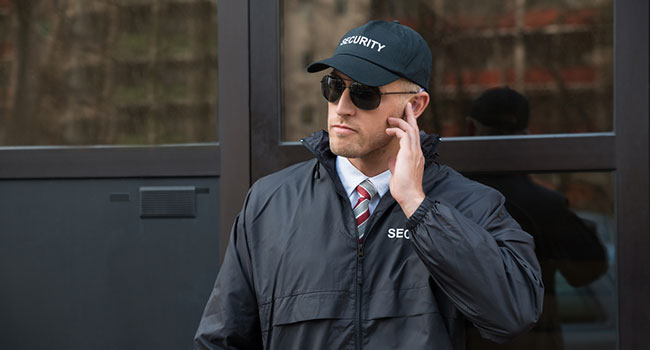
Private Security Outnumber Police Around the World
In at least half of the world’s countries, private security workers outnumber police officers. More than 40 countries, including the United States and the United Kingdom, have more guards privately hired to protect certain people, places and things than police officers whose duty it is to protect the public.
In at least half of the world’s countries, private security workers outnumber police officers. According to the study published by the Guardian, more than 40 countries – including the United States, China, Canada, Australia and the United Kingdom – have more guards privately hired to protect certain people, places and things than police officers whose duty it is to protect the public.
Today, people everywhere are coping with a global increase in terror attacks, violent neo-Nazi protests, school shootings, cyberattacks and more, so it’s not hard to see why citizens may find relief in taking security tactics into their own hands.
And the trend is only expected to accelerate over time – the global market for private security services projected to be worth $240 billion by 2020; the market is currently estimated at $180 billion.
Who hires private security?
Private security workers come in many different forms: from mall “cops” to private investigators, nightclub bouncers to airport security guards; and may be hired by high profile persons, most any types of businesses, facilities such as hospitals and event centers, or even local, state and federal government.
Fiscally strapped municipalities are increasingly turning to contract security services providers as an alternative to expanding their more expensive police forces, a research report from Robert H. Perry and Associates noted. Contracted private security guard services will increasingly replace traditional in-house guard services at government-run schools, hospitals, parking facilities and other municipal properties.
These days, however, municipal entities are not the primary customers. According to Catherine Piana, director general of CoESS, roughly 70 percent of the security industry’s clients in Europe are other private businesses rather than public authorities.
“There is now a very wide range of services, depending of course on who you are,” said Piana, adding that, in the context of threats from terrorism, guards also “often have positions in front of buildings where they can see unusual activities and report them, so there’s a possibility for them to collect information too.”
Private security around the world
India and China are employing the highest numbers of security officers with 7 million and 5 million, and the U.S. follows in third place. This information revealed in the Guardian’s data shows that India has 5.6 million more security guards than police officers, and China’s security outweighs their police force by 2.3 million people.
According to the Department of Labor Statistics, there are more than 1.1. million private security guards in the U.S. – compared to about 660,000 police officers and sheriffs. In 2014, researchers found that the U.S. was employing as many private security guards as high school teachers.
U.S. spending on security services has surged over the past five years in tandem with the economic recovery and increased investment in commercial, residential and public construction projects, according to IBISWorld, and spending is estimated to rise 5 percent to $68 billion annually by 2019.
In Britain, 232,000 private guards were employed in 2015, compared to 151,000 police officers.
Targeting the 1 percent
During U.S. President Donald Trump’s election campaign, the state of New York famously spent $35 million ($500,000 per day) on security for the business mogul’s home and offices. While Trump’s is an unprecedentedly expensive case – average hourly wage for a security worker is $14 – it’s not uncommon for high profile persons or officials to employ private security services.
A 2016 Town & Country article states: “In properly staffed households throughout the world, the bodyguard is the new nanny,” and suggests that “fear of terrorism, a volatile political climate and a pervasive sense that the wealth creation of a few has come at the expense of the many have made paranoia the norm.”
With more than 10,000 private security companies in the U.S., some focus on specifically targeting elite customers with services such as crisis response for the upper class, “executive personal protection” packages and security for mega-yachts.
U.S.-based Pinkerton says it has 170 years of experience employing “highly-skilled agents” who work to protect “Fortune 100 CEOs and their workforces, famous entertainers, athletes, high-net worth individuals, royal families and diplomats.”
As CEOs and upper level executives can be seen as valuable assets to a business, some companies, such as Oracle and Ford, spend more than $1 million annually to provide security for executive employees. This type of protection typically involves screening visitors at gatehouses, guarding the perimeter of executives themselves as well as personal homes, providing 24-hour protection and accompanying them on out-of-town trips.
However, when private security enables the wealthy to bypass the state, some think it could intensify inequalities.
“This phenomenon further increases inequality,” the UN Development Programme said to the Guardian regarding the expansion of private security in Latin America, “as social groups have different capacities to deal with crime.”